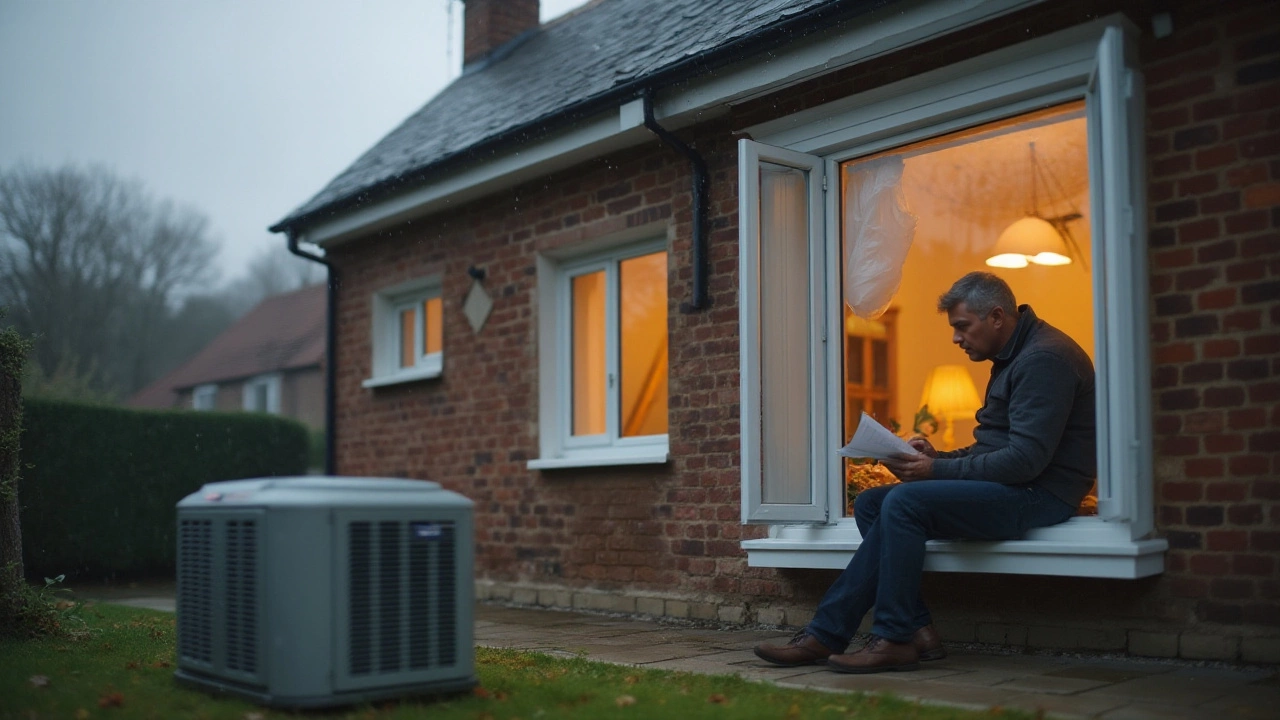HVAC Issues: Spotting and Solving Common Heating Problems
When your home’s heating stops working or starts acting weird, it can feel like a nightmare. Most people think of HVAC as just the furnace, but it also covers boilers, hot water heaters, radiators, and even the ventilation that keeps everything running smoothly. Knowing the usual culprits helps you catch a problem early and avoid a cold, soggy surprise.
In this guide we’ll walk through the everyday signs that something’s off, explain why those symptoms happen, and give you a clear checklist of what you can do yourself before you pick up the phone.
Early Warning Signs You Shouldn’t Ignore
Strange noises. Rattling, banging, or whistling from a boiler or furnace usually means a loose part, pressure issue, or a failing fan. Ignoring it can turn a simple fix into a costly overhaul.
Fluctuating temperature. If one room stays freezing while another feels like a sauna, the problem could be an unbalanced radiator system, air pockets in the pipes, or a thermostat that’s lost its calibration.
Cold showers. A hot water heater that suddenly runs cold often signals a broken dip tube, a tripped reset button, or a heating element that’s burnt out. Checking the reset button is a quick first step.
Water leaks. A puddle around the boiler, tank, or any pipe is a red flag. Leaks erode efficiency and can cause corrosion that damages the whole system.
High energy bills. If your heating bill spikes without a change in usage, your system might be working harder than it should because of dirty filters, a failing heat exchanger, or low‑pressure water in the system.
When to Call a Professional
DIY fixes are great for resetting a water heater or bleeding air from a radiator, but some jobs need a certified technician. Call a pro if you see any of these:
- Repeated boiler shutdowns after a reset.
- Visible cracks or corrosion on the boiler or hot water tank.
- Persistent lack of heat despite a clean filter and correct thermostat settings.
- Any gas‑related smells – this could be a dangerous leak.
- Complex electrical issues, like a tripping breaker each time the furnace kicks on.
Professional HVAC technicians have the tools to pressure‑test, replace heating elements, and safely work with gas lines. They’ll also give you a maintenance plan so the next problem shows up early rather than when you’re shivering in the middle of the night.
Bottom line: the sooner you notice the warning signs and act on them, the less likely you’ll need a major repair. Keep an eye on noises, temperature changes, leaks, and your energy bill. When in doubt, a quick call to a reputable service like Wells Appliance Repairs can save you time, money, and a lot of hassle.
Common Heat Pump Issues and Their Solutions
0 Comments
Heat pumps are an efficient choice for heating and cooling homes, but they can also encounter issues over time. The most frequent problems include inadequate heating, unusual noises, and limited airflow, which can often be linked to improper maintenance or installation errors. Knowing about these common problems can help homeowners troubleshoot or effectively communicate with a professional technician. This article delves into these issues and provides practical tips for prevention and repair.
Read More